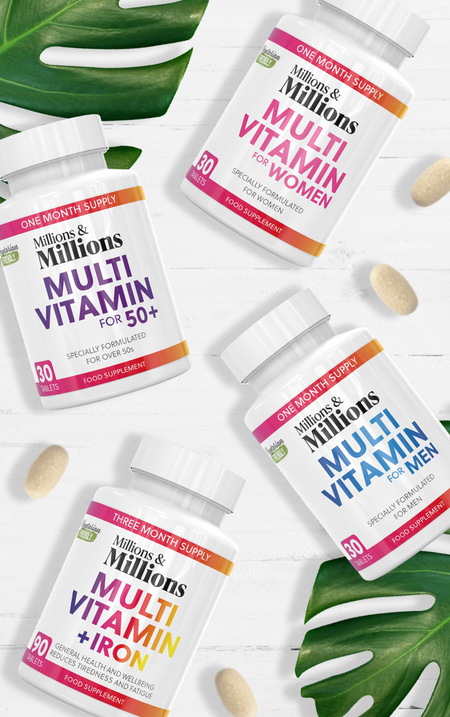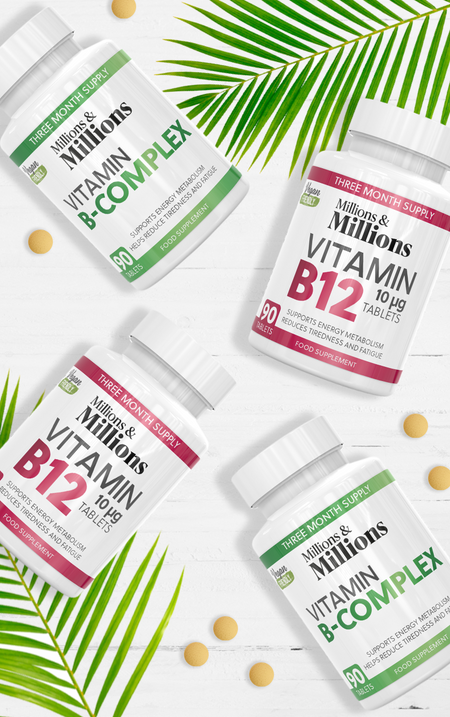
Five Ways to Beat Fatigue
Life can be hard work. There’s work to contend with, social commitments, childcare, commuting, financial planning, cooking, housework - all those little things that we want, or have, to do. It’s really no surprise that we’re more fatigued than ever, with almost one in five Brits claiming that they’ve been tired for a month or more.
And it’s even less of a surprise that we’re looking for ways to beat fatigue, restore our energy levels, and feel ready to tackle everything that life can throw at us.
Here are five ways you can reduce that ever-present tiredness and recharge your mental and physical batteries.
One: Get Your Sleep
This might sound a little too obvious, but it really does make sense. If you’re tired, you need sleep. Doctors recommend that we all get between seven and nine hours of good quality, uninterrupted sleep each night.
But we don’t do that.
A 2017 study shows that one of the reasons we’re so tired is that we just don’t sleep enough:
- 67% of UK adults suffer from disrupted sleep
- The average adult gets only six hours’ sleep each night - less than the minimum recommendation of seven hours
- 23% of UK adults don’t even get six hours, reporting an average of five hours’ sleep per night
Everyone has their own reasons for not sleeping. New parents don’t have much choice, shift and night time workers will find sleeping during the day a challenge, and some studies suggest that a Vitamin D deficiency can make it tougher to switch off and sleep.
But having a regular bedtime, avoiding screens in the hour before bed, and getting the right pillows and mattress (along with the right Vitamin D supplement) will help you get enough sleep and start to beat that fatigue.
Two: Fuel Your Body
Another obvious one - but if your body isn’t getting the right fuel, the right food, then it will burn through your energy reserves and leave you feeling tired and sluggish.
But that doesn’t mean indulging in huge, heavy meals. Three small meals per day, with healthy snacks such as fruit or nuts every three to four hours, will keep your energy levels high and leave you feeling much more energetic.
Keeping a healthy BMI will also help, as the more weight you carry, the harder your body needs to work, and the more tired and fatigued you’ll be.
Three: Cut Out The Caffeine
Now this isn’t obvious. For many of us, that first morning coffee, that 3pm cup of tea, or that emergency can of energy drink is an instant way to combat fatigue with some instant chemical stimulation.
But caffeine consumption is a trick. You’ll feel more energetic for a short while, but then you’ll be more tired than ever. So you need more caffeine, which perks you up for a short time before you’re even more tired than you were when you were more tired than ever!
Gradually cutting out caffeinated drinks and supplements over a three week period and then avoiding it wherever necessary will wean you off this artificial energy booster and train your body to use its natural energy reserves. And it’ll help you sleep better.
And remember, caffeine stops your body absorbing certain vitamins, so while you’re weaning yourself off the espresso, increase your intake of vitamin C and B vitamins.
Four: Take a Break
Britain is a tired country. We don’t sleep enough, we don’t eat right, and we’re addicted to tea and coffee. But that’s not all. 79% of us are stressed because of work, and stress makes it harder to sleep, harder to eat right, more reliant on that morning latte, and just makes us all more tired.
So take a break from work. That could be a long break like two weeks in a secluded guesthouse in the Scottish Highlands, a short break like a long weekend on a sunny Spanish beach, or regular microbreaks like turning off work emails when you finish work, and sending out-of-hours work calls to voicemail.
Every little thing you do to reduce stress will help you combat fatigue. So do as much as you can.
Five: Increase Your Vitamin Intake
Your body needs the right vitamins to reduce feelings of tiredness and fatigue. We’ve already mentioned that vitamin D helps you sleep, and vitamin C helps counteract some of the side-effects of a caffeine addiction, but some vitamins will give you a mental and physical energy boost.
The two best vitamin supplements for beating fatigue are Vitamin B12 and Iron, both of which can help you feel a little less tired.
But vitamins aren’t wonder treatments. You need to get enough of every vital vitamin and mineral to support your body’s natural processes - and you still need to sleep more, eat right, switch off and ditch the energy drinks.
Do those five things and you’ll find that you’re beating fatigue before you know it.
And drink some water too. Hydration is very important.















